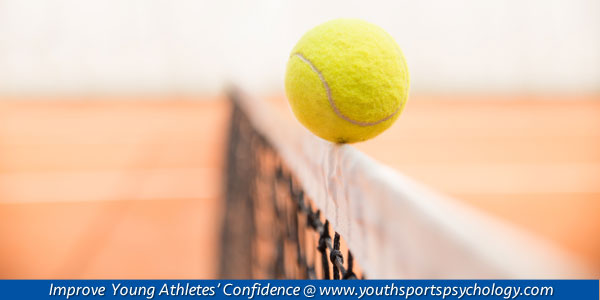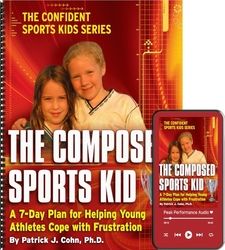
Sports Kids Who Make Comparisons
Parents and coaches, how many times have you heard your kids say, “We’re never going to beat that team! The players are huge.” Or fast. Or tough.
The minute your hear this uttered by one of your team members, hold everything and have a heart-to-heart with your players.
When kids play the comparison game, they hurt their confidence.
First of all, they’re assuming the other kids are better than they are. They’re psyching themselves out from the get-go.
Second, they want so badly to beat these players that they feel intimidated and start to tighten up and focus too much on the score.
Third, they’re pulling their teammates down with them by focusing on the other team’s big muscles, quick feet, perfect equipment, award-winning coaches and stellar record.
In fact, sometimes kids compare themselves to their own teammates, and that doesn’t help the team, either.
Instead, kids need to focus on what they do best, whether it’s serve as a good teammate, pass well, excel on defense, or hold up under pressure.
To help these kids who compare themselves to others—and let’s face it, most young athletes do this—start by helping them identify the times they’re most likely to make these comparisons.
Parents say kids judge themselves against gifted friends, jealous of teammates who perform well, jealous of siblings who are talented athletes, and worried about their size or strength and compare themselves to bigger, stronger kids.
Remind them to focus on their own strengths—not on others’ strengths. Help them create a confidence resume—a resume of their positive qualities and positive experiences in sports.
Related Articles on Youth Sports:
- Help Sports Kids Turn Comparisons into Growth & Comradery
- Athletes Who Make Comparisons And How Parents Contribute
- Why Kids’ Self-Confidence Suffers When Sports Parents Make Comparisons
*Subscribe to The Sports Psychology Podcast on iTunes
*Subscribe to The Sports Psychology Podcast on Spotify
The Composed Sports Kid

“The Composed Sports Kid” audio and workbook digital download program for young athletes and their parents or coach helps kids cope with frustration and anger in sports. Help your sports kids learn how to manage expectations and let go of mistakes so they can keep their head in the game.
The Composed Sports Kid system is really two programs in one–one program to train parents and coaches how to help their kids practice composure, and one program that teaches young athletes–ages 6 to 13–how to improve composure, let go of mistakes quickly, have more self-acceptance, and thus enjoy sports more!
